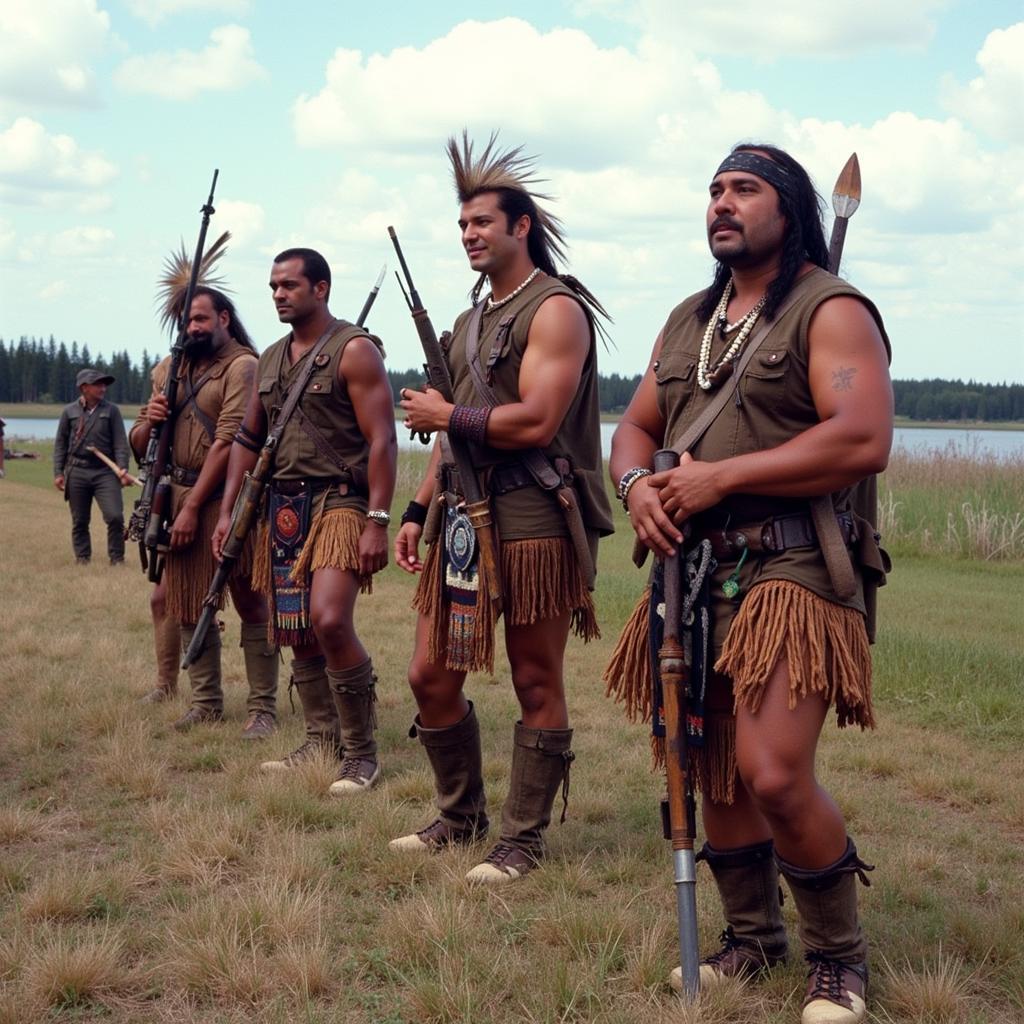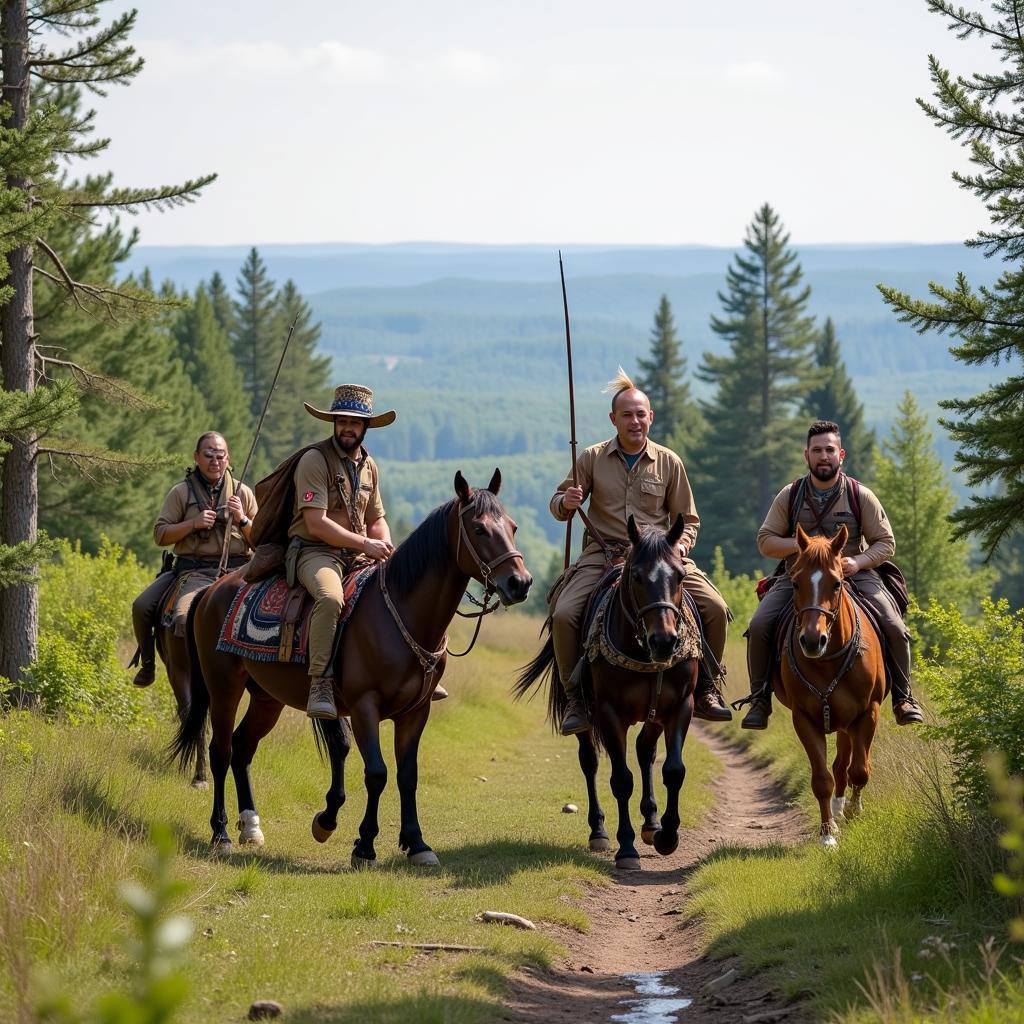The Mohawk Warrior Society, often shrouded in controversy, represents a complex and multifaceted aspect of Mohawk sovereignty and resistance. This article explores the history, motivations, and impact of the Warrior Society, aiming to foster understanding and promote peaceful dialogue on Indigenous rights and self-determination.
A History of Resistance: The Roots of the Mohawk Warrior Society
The Mohawk Warrior Society emerged in the 1970s, a period marked by growing Indigenous activism and the assertion of treaty rights. Frustrated by government inaction and perceived violations of their sovereignty, a group of Mohawk people formed the Warrior Society to defend their land and cultural heritage. Their actions, often characterized by direct action and civil disobedience, brought the Mohawk struggle to the forefront of national and international attention. The Oka Crisis of 1990, a 78-day standoff between the Mohawk community, the Quebec police, and the Canadian Army, significantly shaped public perception of the Warrior Society and solidified their role as protectors of Mohawk sovereignty.
One of the key principles driving the Mohawk Warrior Society is the defense of Kanien’kehá:ka, their traditional territory. This territory, which spans parts of present-day Canada and the United States, holds immense cultural and spiritual significance for the Mohawk people.
 Mohawk Warrior Society During the Oka Crisis
Mohawk Warrior Society During the Oka Crisis
Mohawk Warrior Society: Guardians of Sovereignty
The actions of the Mohawk Warrior Society are deeply rooted in the concept of Indigenous sovereignty. For the Mohawk people, sovereignty represents the inherent right to self-government and control over their land, resources, and cultural identity. The Warrior Society views itself as a vital force in upholding this sovereignty, challenging government policies and actions perceived as infringing upon their rights. They argue that their actions are necessary to protect their cultural heritage and ensure the well-being of future generations.
The Mohawk Warrior Society’s commitment to sovereignty extends to their active participation in international Indigenous rights movements. They have forged alliances with other Indigenous groups around the world, sharing their experiences and advocating for greater recognition of Indigenous self-determination.
 Mohawk Warrior Society Protecting Traditional Territory
Mohawk Warrior Society Protecting Traditional Territory
Controversies and Challenges: Navigating the Path Forward
The tactics employed by the Mohawk Warrior Society, while often effective in drawing attention to their cause, have also generated controversy. Critics argue that their methods, which can involve blockades, protests, and confrontations with law enforcement, disrupt public order and create divisions within society. Understanding the historical context and the underlying motivations behind these actions is crucial for fostering productive dialogue and finding common ground. Open communication, respect for Indigenous rights, and a commitment to peaceful resolution of disputes are essential for building a future where the rights and aspirations of all peoples are respected.
Frequently Asked Questions about the Mohawk Warrior Society
1. What is the Mohawk Warrior Society’s primary goal?
The Mohawk Warrior Society’s main objective is to protect and uphold Mohawk sovereignty, including their rights to land, resources, and self-government.
2. When did the Mohawk Warrior Society form?
The Mohawk Warrior Society emerged in the 1970s in response to growing concerns about Indigenous rights and land claims.
3. What role did the Oka Crisis play in the history of the Warrior Society?
The Oka Crisis of 1990 brought the Mohawk Warrior Society to international attention and solidified their role as defenders of Mohawk sovereignty.
4. What are some of the key criticisms of the Mohawk Warrior Society?
Some criticize the Warrior Society’s tactics, arguing that they disrupt public order and create societal divisions.
5. What is the significance of Kanien’kehá:ka to the Mohawk people?
Kanien’kehá:ka is the traditional territory of the Mohawk people and holds immense cultural and spiritual importance for them.
The Mohawk Warrior Society continues to play a significant role in the ongoing struggle for Indigenous rights and self-determination. Understanding their history, motivations, and the complex challenges they face is essential for promoting peace, reconciliation, and a just future for all. The Mohawk Warrior Society represents a powerful voice in the call for Indigenous sovereignty. By engaging in open dialogue and seeking peaceful solutions, we can work towards a future where the rights and aspirations of all peoples are respected and upheld.
For further support, please contact us at Phone Number: 02043854663, Email: [email protected] or visit us at: Khu 34, Bac Giang, 260000, Vietnam. Our customer service team is available 24/7.